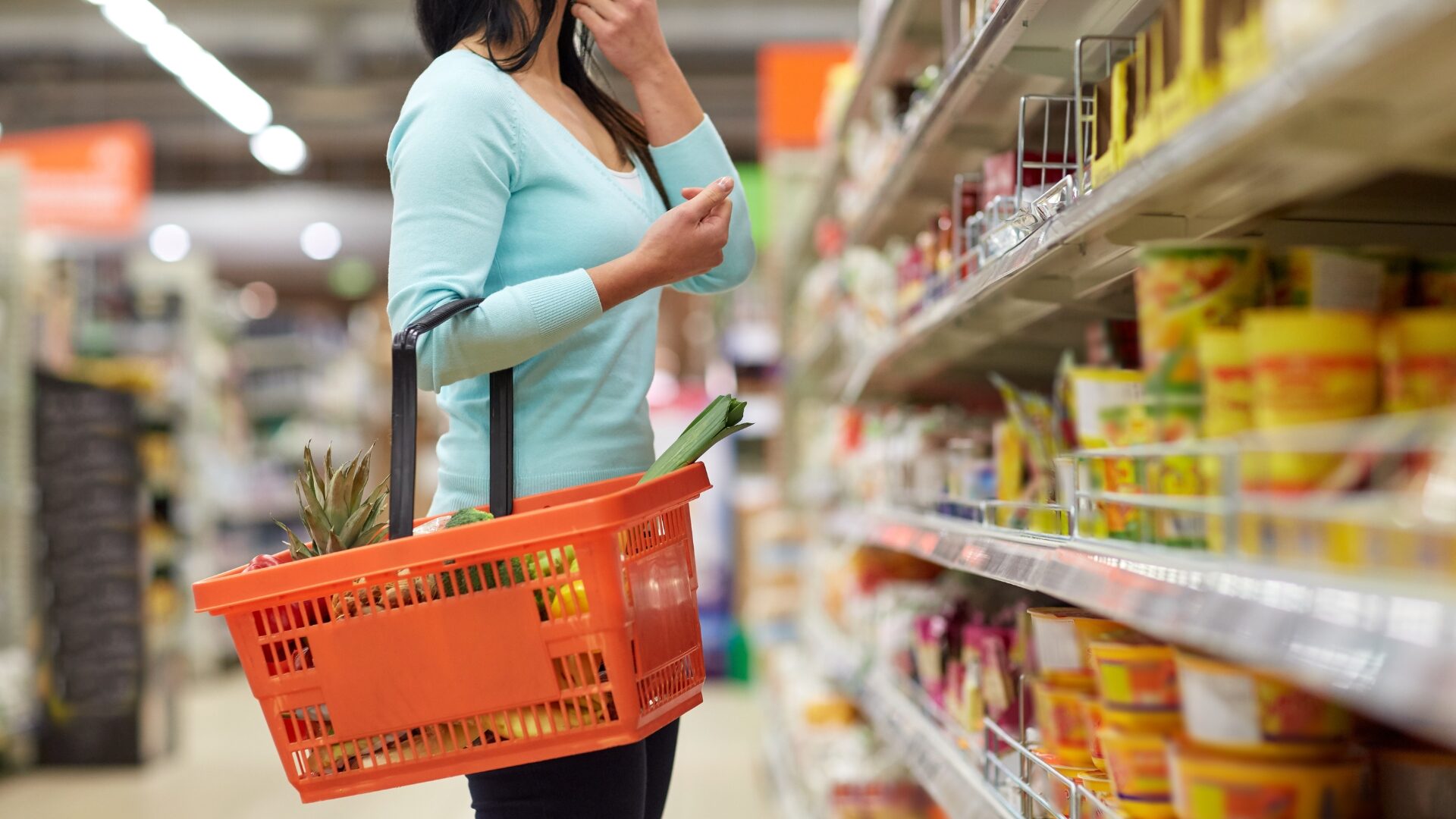What does it take to move from a great idea to a great product? Many have experienced the spark of inspiration – “Hey, you know what would be fantastic?!” – but few have the fortitude to follow up, follow through, and throw down in the highly competitive CPG market of foodbev.
In early 2020, Phil Gorman wanted a better bagel shop near his home in La Jolla, California, a little coastal community on the north end of San Diego. So he started CaliBagels, rolling them by hand and delivering door-to-door. Yet COVID, in his own words, shined a light on why that wasn’t such a great idea.
“So I pivoted to wholesale, but without a full commercial bakery setup, I discovered that wasn’t a good business. I started slicing the bagels into chips and sent them out to people instead,” Gorman told The Food Institute.
One of those people was an old high school buddy from Baltimore named Geary Stonesipher, owner of a smoked fish dip company called Mrs Peters. Stonesipher and Gorman thought the chips could use a seasoning close to their hearts and hometown – OLD BAY. Gorman had done licensing in the past, and within a few months CaliBagels had an exclusive partnership and a deal pending with OLD BAY® owner McCormick & Company, the Baltimore-based seasoning company. (Frank’s Red Hot seasoning was also included in the deal.)
“McCormick thought bagel chips are the perfect delivery system of their seasonings,” Gorman said.
Despite a solid product, however, Gorman knew he needed more help to manufacture at scale and really get CaliBagels off the ground. He had been trying to get the chips made using co-manufacturers and tried to hire experts with more baked goods and/or CPG experience. With “zero” background in food, Gorman spent some money, hired a few people, and still admitted his task was a tough one.
Now, three years later, Gorman said his “OG product has life,” and CaliBagels bagels will be found in Erewhon and Jimbo’s stores in 2024. He hopes to be the private-label supplier of a large natural and organic grocery chain as well.
Gorman drives to LA about once per month to keep tabs on what’s happening inside Erewhon grocery stores. “They do an excellent job of curating and educating in a small footprint,” he said, “and you can’t go wrong – it’s like walking through a museum, almost. I like to just stroll.”
Before CaliBagels, Gorman spent 10 years with American Express, working with vendors and clients at a national level. He knew he didn’t want to go on a “super narrow path” with his product – “Sure, riches are made in the niches, but when you’re selling a $4 item, you have to sell a lot,” he said, and knew he needed a product that could make it in natural and organic as well as more conventional grocery and retail spaces, noting that his bagel products straddle the Albertsons and Krogers of the world.
“It’s not KETO, it’s not gluten-free, it’s not upcycled grain or something super narrow – it’s a business at the end of the day that needs to make money,” he said, “and if it’s good enough for Erewhon, it should be good enough for many people.”
Thus far, Gorman’s strategy is working. Besides his license with Frank’s Red Hot for his bagel chips, more are in the hopper which he was not at liberty to divulge.
And that’s just one half of the bagel. The other half is what emerged from his experience launching a CPG company – CPGBrains.com.
The UpWork of CPG
While launching CaliBagels (and surviving through a few different early iterations), Gorman knew he needed partners he could rely upon to help realize his dream. Then he realized he didn’t have a platform to track and manage the contractors he had used in a simple and efficient way.
“Many brands that need to hire contractors, however, are smaller – like CaliBagels – with neither the cash flow nor infrastructure to support a full-time person.”
So he started CPGBrains.com, an online resource for CPG companies to find who they need in just about every discipline imaginable: financial, manufacturing, distribution, marketing, fundraising, sales, compliance, supply chain, e-commerce, technology, digital marketing, and creative.
“I’m trying to make it as easy as possible to do business and have success,” Gorman said.
To do so, Gorman vets all contractors, culled from a lifetime in making connections and particularly during his time in CPG. UpWork charges up to a 20% fee for most deals; Gorman charges 10% to the vendors, and no fees to brands on the platform.
“Ten percent is a pretty accepted number,” he said, “and we don’t do any nickel-and-diming. The service is free for brands and paid for contractors and we collect 10% on contracts closed.”
Gorman said it’s imperative to keep the quality of his contractor pool high – it isn’t a come-one, come-all type of service. CPGBrains.com is limited to freelancers in the U.S. but open to brands from anywhere. And subjects.
“We get a lot of questions regarding CBD and cannabis, and we’re also looking at beauty and fashion. They’re parallel markets to food and beverage.”
Good Companies Make CPG Look Easy
Leslie Danford is founder and CEO of Vitaminis, a clean-label functional food and beverage brand. While launching her company, “All I had were ideas on paper,” she told The Food Institute.
“Transitioning from a concept to an actual, sellable product proved to be one of the most challenging and crucial aspects. Many companies fail to progress beyond this stage. And one of the most difficult things moving forward was finding the right co-packing partner.”
Danford said she learned to mitigate risks by choosing a partner with a positive working relationship with another brand in your industry, or even with a formulator or supplier – a vetted professional, in other words, giving voice to the same concerns Gorman had while developing CPGBrains.
“The CPG industry is relatively small,” she added, “so invest in building relationships, take the time to understand the team, establish mutually beneficial terms, and observe where the collaboration leads.”
Like Gorman, Danford also felt the early days were often overwhelming amid a grocery, retail, and e-commerce foodscape rife with big-brand impersonators, bad actors, and an industry perpetually beset by tidal forces outside of its control (the economy, inflation, COVID once upon a time).
“I think this is why many people don’t ever take the leap,” she said. “When I embarked on the entrepreneurial journey, I thought that the most difficult thing would be just the fact that I would need to work hard.
“The terrain is laden with uncertainty, offering no guarantees. Making sacrifices and navigating trade-offs become routine, all without a clear assurance of positive outcomes.”
For Gorman, one of those areas of uncertainty was finding the right distributor.
“The distributor is the necessary piece of the puzzle,” he said. “Understanding distribution is really important. I have an e-commerce background, and getting folks who understand Amazon, for instance, and who know how to actually make money on the platform is an important thing. Being shelf-stable through Amazon is one of the aspects for CaliBagels I need to look at the most because it’s so deep and so detailed.”
Looking ahead, Gorman said it’s an exciting time for CaliBagels and CPGBrains.com.
“I don’t have to ask permission [with CPGBrains], deal with the manufacturer, or worry about ingredients,” he said.
CPGBrains.com officially launches in January 2024. Gorman already has over 100 members; about 90% are freelancers, 10% are brands. He hopes to have about 150 in the pool at launch and to be a trusted resource for CPG brands (and the freelancers who can help them) to find one another. He hopes to have 500 on the platform by the spring and to foster other categories of expertise by that point.
One thing he’s learned while developing CPGBrains is that everyone uses – and often needs – a good freelancer or consultant.
“More brands use outsourced freelancing and expert help than I imagined,” he said, “and many of our experts are C-suite level executives.” Gorman said.
“We know we’ll grow the brands’ participation after the doors open.”











